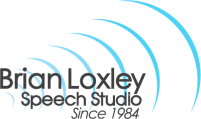[Click here for an audio version of this post]
If you don’t pronounce vowel sounds correctly in English, others may misinterpret what you say, sometimes with amusing results.
A man by the name of Kevin wrote into the Metropolitan Diary Column of the New York Times to describe an experience he had had at a pharmacy. He looked in their new food section to get something to eat for lunch and picked out some sushi. As he was paying for it, he asked the woman behind the counter if she had any chopsticks. Without saying a word, she pointed to a bowl over in the cosmetics section, which Kevin found kind of odd. But when he went over there and reached into the bowl, he found that it was full of chap sticks. Kevin wrote that it had never occurred to him before how similar these two words are.
The clerk behind the counter had mistaken “chop sticks” for “chap sticks.” This is a very common mistake for many foreign speakers of English, who confuse the American short “a” (as in “apple”) with the vowel sound “Ahhh.” They pronounce the short “a” as “Ah” and also hear it as “Ah.” This should not be surprising when we realize that the letter “a” is pronounced “Ah” in most other languages (Casa Blanca; Ja). The letter “a” is also pronounced “Ah” in about 50 English words, such as father, drama, wasp, mantra, massage, yacht, and pasta.
Pronouncing the short “a” as Ah can lead to confusion as when a client of mine recently was using i-pod and i-pad interchangeably. Other pairs of words that may cause confusion are cop/cap (Where’s the cop? Where’s the cap?), mop/map (Hand me the mop! Hand me the map!), pocket/packet (Is the packet in your pocket?), Don/Dan (Do you mean Don? Do you mean Dan?), and volley/valley (They played volley ball in the valley).
To create the /a/ Ah sound as in “cop” and “father,” you need to drop your jaw and lower your entire tongue to its lowest position in the mouth as when one makes an important discovery and says “Ah Ha!” (You also need to keep your lips relaxed and neutral and make sure they’re not rounded.)
To make the short “a” sound, on the other hand, move your tongue forward and slightly arch the front of the blade of your tongue, which is just behind its tip. Some people hear this sound as being similar to the sound a sheep makes when it bleets: “MA-A-A-A!” (Be sure to keep the BACK of your tongue low in the mouth, or you may get a rather unpleasant palatal sound, which causes some speakers to want to avoid this vowel sound altogether.)
In practicing these two sounds, you can move your tongue back and forward a number of times from Ah to the short “a.” And then use the vowels in simple pairs of one-syllable words—each repeated several times: mop/map, mop/map, mop/map; cop/cap, cop/cap, cop/cap, and so on. And then use the pairs of words in short sentences, as I did before: Hand me the mop. Hand me the map—in which the word “hand” also has the short “a” sound. Cop/cap, cop/cap. The cop took off his cap.
The position of the tongue is crucial in pronouncing these vowels—as well as ALL vowels—correctly. If you have trouble making or hearing these or other vowel sounds, you may want to enlist the services of a speech coach. (After all, that’s what we’re here for.)
When a speaker mispronounces a vowel sound and thereby substitutes another word for the one she intended to use, the grammar and context may make the meaning clear, and the mispronunciation just sounds odd or can be distracting, while at other times the mix-up of vowels creates confusion or genuine misunderstanding, as it did in the incident at the pharmacy with the chop sticks and chap sticks.
And then there is the matter of whether the country Iraq should be pronounced with the short “a” (ear-Rack) or with the Ah vowel (ear-Rock) and whether Iran should be pronounced (ear-Ran) or (ear-Ron), and (PAh ki StAhn) or (Pack uh Stan), (Ahf gAH ni stAHn) or (Af ghA nuh stAn). But this is another story. So stay tuned for another edition of Inside the Speech Studio.
